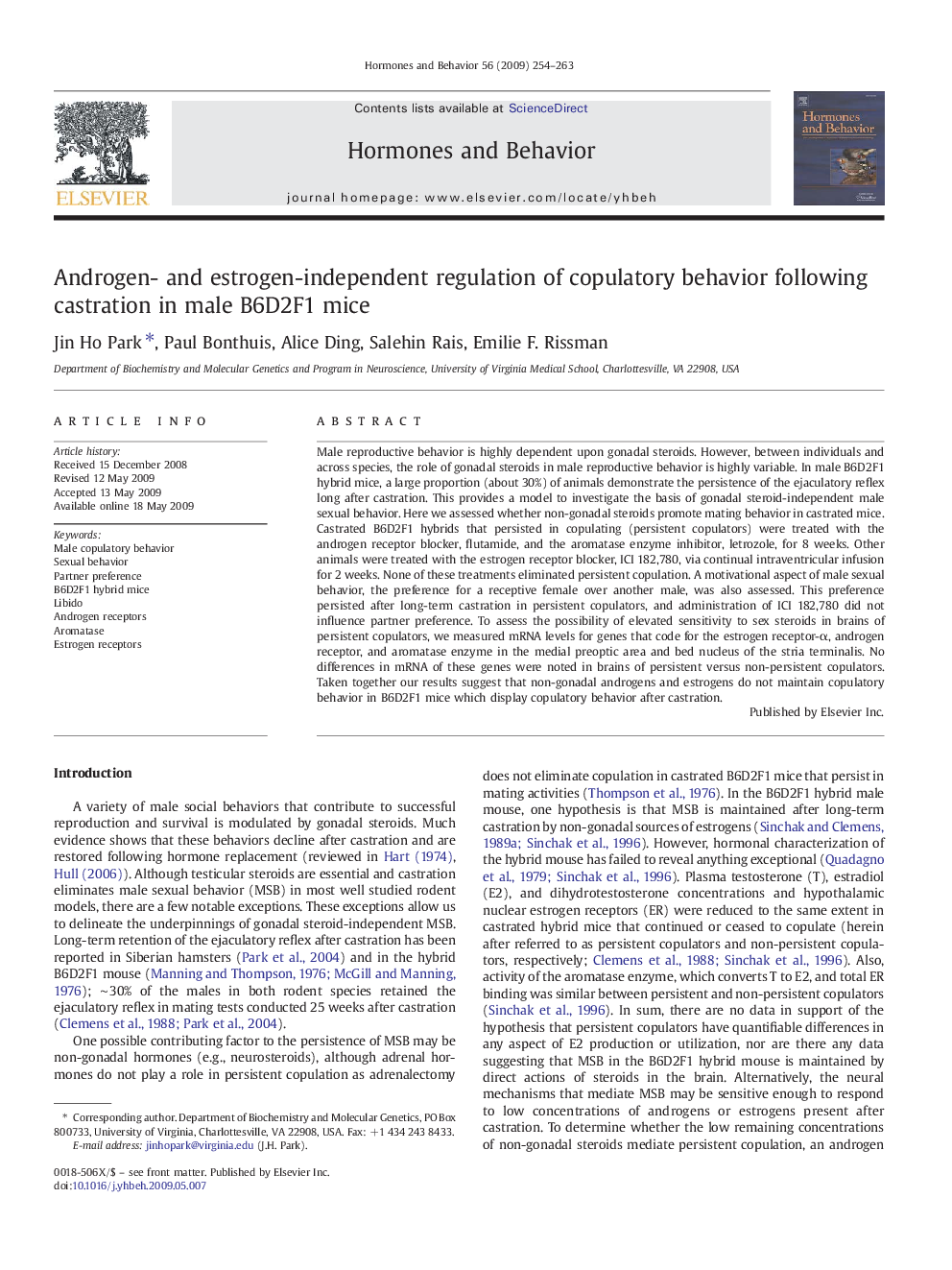| کد مقاله | کد نشریه | سال انتشار | مقاله انگلیسی | نسخه تمام متن |
|---|---|---|---|---|
| 323739 | 540764 | 2009 | 10 صفحه PDF | دانلود رایگان |

Male reproductive behavior is highly dependent upon gonadal steroids. However, between individuals and across species, the role of gonadal steroids in male reproductive behavior is highly variable. In male B6D2F1 hybrid mice, a large proportion (about 30%) of animals demonstrate the persistence of the ejaculatory reflex long after castration. This provides a model to investigate the basis of gonadal steroid-independent male sexual behavior. Here we assessed whether non-gonadal steroids promote mating behavior in castrated mice. Castrated B6D2F1 hybrids that persisted in copulating (persistent copulators) were treated with the androgen receptor blocker, flutamide, and the aromatase enzyme inhibitor, letrozole, for 8 weeks. Other animals were treated with the estrogen receptor blocker, ICI 182,780, via continual intraventricular infusion for 2 weeks. None of these treatments eliminated persistent copulation. A motivational aspect of male sexual behavior, the preference for a receptive female over another male, was also assessed. This preference persisted after long-term castration in persistent copulators, and administration of ICI 182,780 did not influence partner preference. To assess the possibility of elevated sensitivity to sex steroids in brains of persistent copulators, we measured mRNA levels for genes that code for the estrogen receptor-α, androgen receptor, and aromatase enzyme in the medial preoptic area and bed nucleus of the stria terminalis. No differences in mRNA of these genes were noted in brains of persistent versus non-persistent copulators. Taken together our results suggest that non-gonadal androgens and estrogens do not maintain copulatory behavior in B6D2F1 mice which display copulatory behavior after castration.
Journal: Hormones and Behavior - Volume 56, Issue 2, August 2009, Pages 254–263